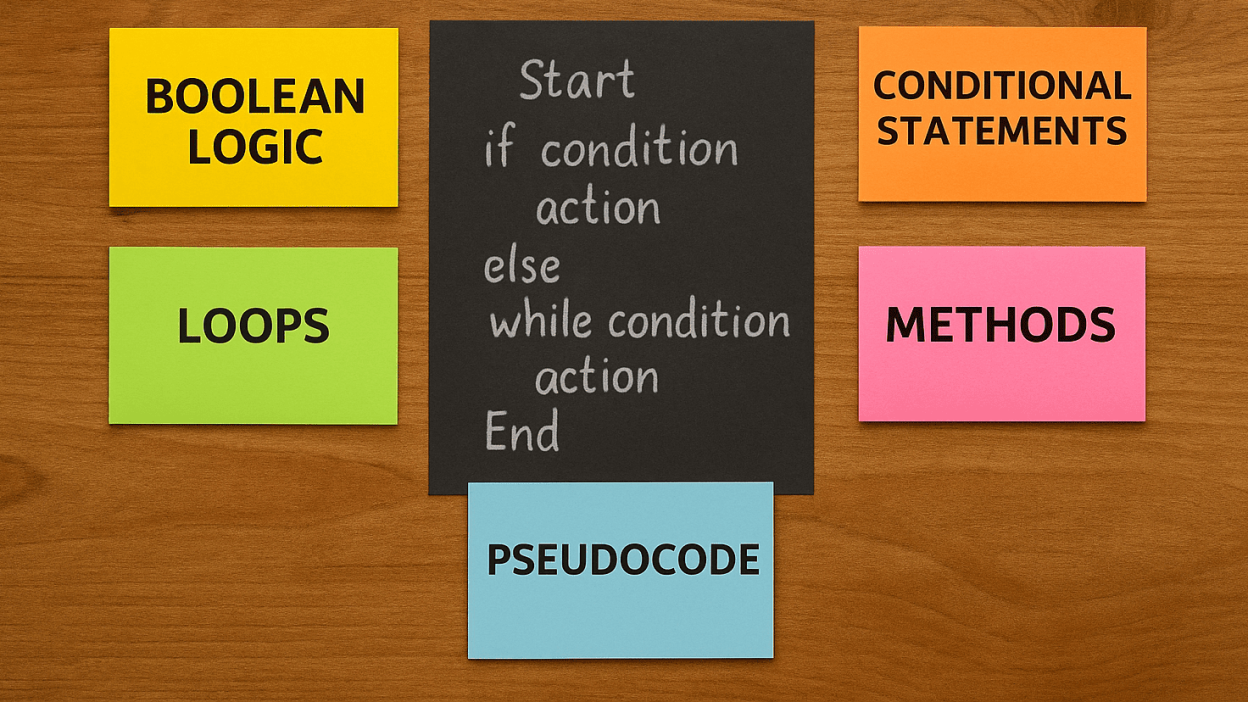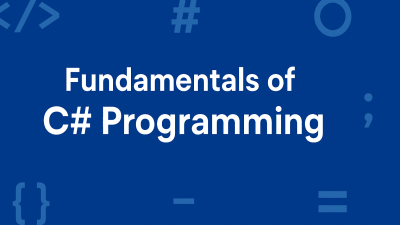This guide explores fundamental programming concepts, including Boolean logic, conditional statements, loops, methods, and pseudocode. Mastering these principles is essential for writing efficient, structured, and maintainable code.
Boolean Logic & Control Flow
Boolean logic forms the basis of decision-making in programming, using three key operations:
- AND (
&&) → Returnstrueonly if all conditions are true. - OR (
||) → Returnstrueif at least one condition is true. - NOT (
!) → Inverts a Boolean value (truebecomesfalseand vice versa).
Control structures like if, else, and switch use Boolean logic to direct program execution:
ifstatements execute code only when a condition is met (e.g., unlocking a door if the player has a key).elsestatements provide an alternative action when theifcondition fails.switchstatements efficiently handle multiple possible cases (e.g., processing different user inputs).
Loops for Efficient Repetition
Loops automate repetitive tasks, reducing redundancy and errors. Common loop types include:
forloops → Best for fixed iterations (e.g., processing each item in a list).whileloops → Run as long as a condition remains true (e.g., attacking enemies until none are left).
Loops enhance efficiency by eliminating manual repetition and ensuring consistent execution.
Structuring Code with Methods
Methods (or functions) are reusable code blocks that perform specific tasks. A method includes:
- A name (e.g.,
Accelerate) - Parameters (inputs)
- A return type (output)
- The executable code
Example:
public static int Accelerate(int gas)
{
int velocity = gas * 10;
return velocity;
}Benefits of Methods:
✔ Modularity – Breaks complex problems into smaller parts.
✔ Reusability – Avoids redundant code.
✔ Maintainability – Easier to debug and update.
Planning with Pseudocode
Pseudocode is a syntax-free way to outline program logic before coding. It helps clarify structure and prevent errors early.
Example (Car Acceleration):
- Initialize car.
- Check gas level.
- If gas > 0, increase velocity.
- Display updated status.
Pseudocode bridges conceptual planning and actual implementation, ensuring a logical flow.
Conclusion
Understanding Boolean logic, control structures, loops, methods, and pseudocode is vital for writing clean, efficient, and scalable programs. These concepts help developers:
✔ Organize code effectively.
✔ Automate repetitive tasks.
✔ Simplify debugging and maintenance.
✔ Plan logic before implementation.
By mastering these fundamentals, programmers can build robust and maintainable applications.



